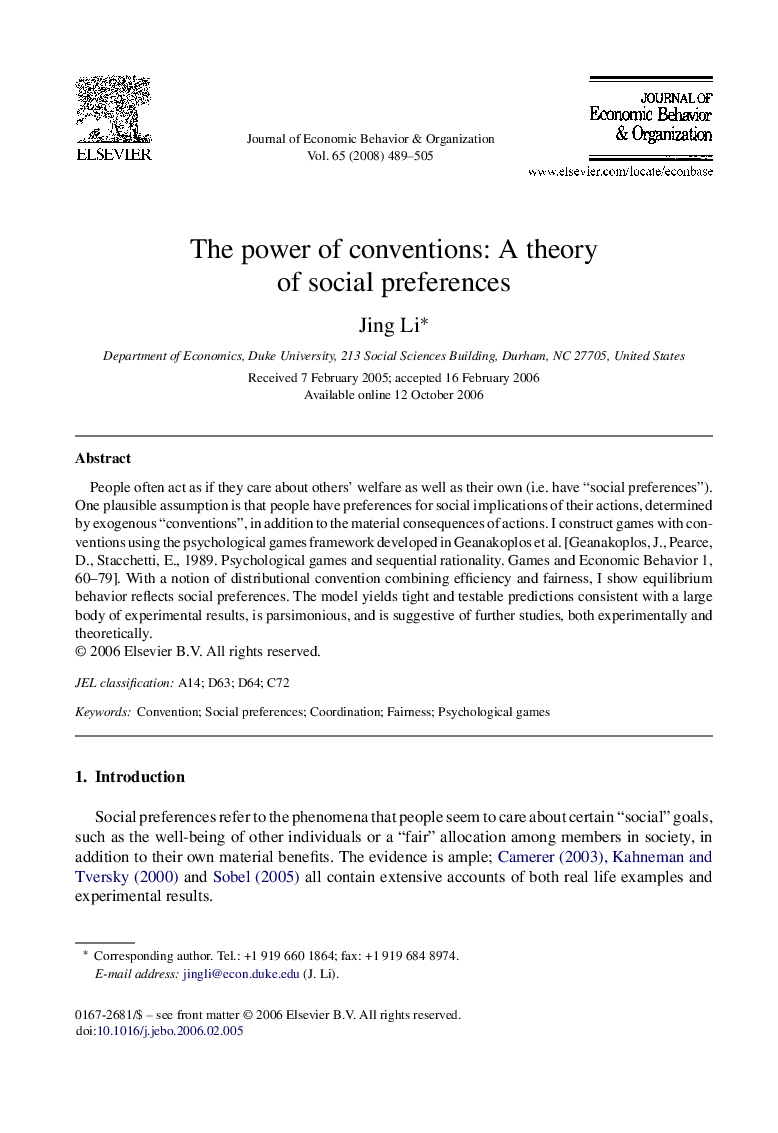| Article ID | Journal | Published Year | Pages | File Type |
|---|---|---|---|---|
| 884459 | Journal of Economic Behavior & Organization | 2008 | 17 Pages |
People often act as if they care about others’ welfare as well as their own (i.e. have “social preferences”). One plausible assumption is that people have preferences for social implications of their actions, determined by exogenous “conventions”, in addition to the material consequences of actions. I construct games with conventions using the psychological games framework developed in Geanakoplos et al. [Geanakoplos, J., Pearce, D., Stacchetti, E., 1989. Psychological games and sequential rationality. Games and Economic Behavior 1, 60–79]. With a notion of distributional convention combining efficiency and fairness, I show equilibrium behavior reflects social preferences. The model yields tight and testable predictions consistent with a large body of experimental results, is parsimonious, and is suggestive of further studies, both experimentally and theoretically.
